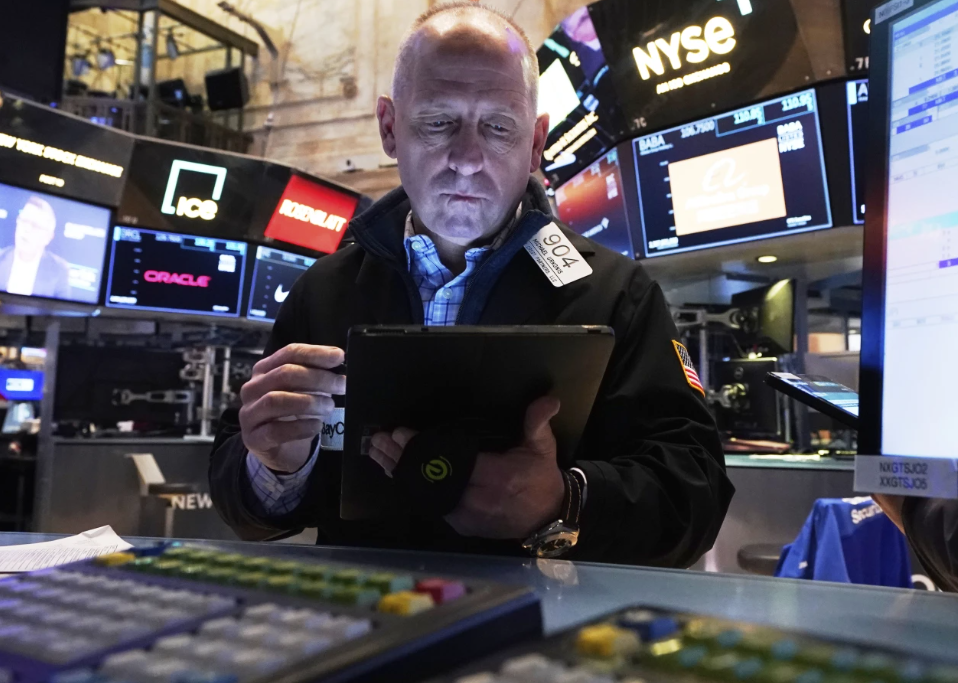As Big Tech companies begin their quarterly earnings reports this week, they find themselves facing an unexpected wave of uncertainty and disruption, largely triggered by actions since Donald Trump returned to the White House nearly 100 days ago.
Since President Trump’s inauguration on January 20, Big Tech stocks have experienced a volatile ride, wiping out trillions of dollars in shareholder value amid a series of tariffs and other potentially harmful policies. This stands in stark contrast to the optimism that major tech leaders, including Apple CEO Tim Cook, Tesla CEO Elon Musk, Google CEO Sundar Pichai, Facebook founder Mark Zuckerberg, and Amazon founder Jeff Bezos, had when they supported Trump during his second inauguration. They believed Trump’s presidency would bring relief from heavy regulation under President Joe Biden and unlock new opportunities in artificial intelligence and business deals.
However, the Trump administration’s policies have become a challenge for Big Tech’s top companies—Apple, Microsoft, Nvidia, Amazon, Tesla, Google’s parent Alphabet, and Facebook’s parent Meta Platforms—collectively known as the “Magnificent Seven.” Since Trump’s inauguration, their combined market value has fallen by $3.8 trillion, or 22%, as of April 20.
The financial damage worsened after Trump announced sweeping tariffs on April 2, which threatened to disrupt Big Tech’s supply chains in China and other key markets globally. While a temporary freeze on the most severe tariffs and exemptions for most electronics from China provided some relief, Trump has signaled that the reprieve may not last long, leaving the shadow of a trade war looming over the tech industry.
Dan Ives, an analyst at Wedbush Securities, noted that the constant flow of conflicting news from the White House has caused confusion within the industry, creating uncertainty for companies trying to plan their supply chains, inventory, and demand.
Beyond the tariff troubles, Trump’s administration is also tackling antitrust issues, including allegations against Meta for running an illegal monopoly in social networking and efforts to break up Google after its search engine was found to have abused its power. Trump has also shown no signs of abandoning antitrust lawsuits filed under the Biden administration that could hurt Apple and Amazon. Nvidia faced a significant setback recently when the Trump administration banned it from selling one of its popular AI chips to China, resulting in a $5.5 billion charge to account for the unsold stockpile intended for the Chinese market.
Tech CEOs will discuss these challenges and their impact during conference calls with analysts as part of their financial earnings reports for the January-March quarter. The earnings season will begin with Tesla releasing its full financial results on Tuesday, after already revealing a 13% drop in first-quarter car sales compared to last year. This decline comes amid protests and calls for boycotts against Musk, partly due to his prominent role in the White House overseeing cost-cutting measures in U.S. government agencies.
Following Musk’s update on Tesla’s strategy, Alphabet (Google’s parent company) will announce its earnings on Thursday. The remaining companies in the Magnificent Seven—Amazon (April 29), Meta and Microsoft (April 30), and Apple (May 1)—will report next week. Nvidia, which follows a fiscal year ending in January, will round out the earnings season with its quarterly results on May 28.














